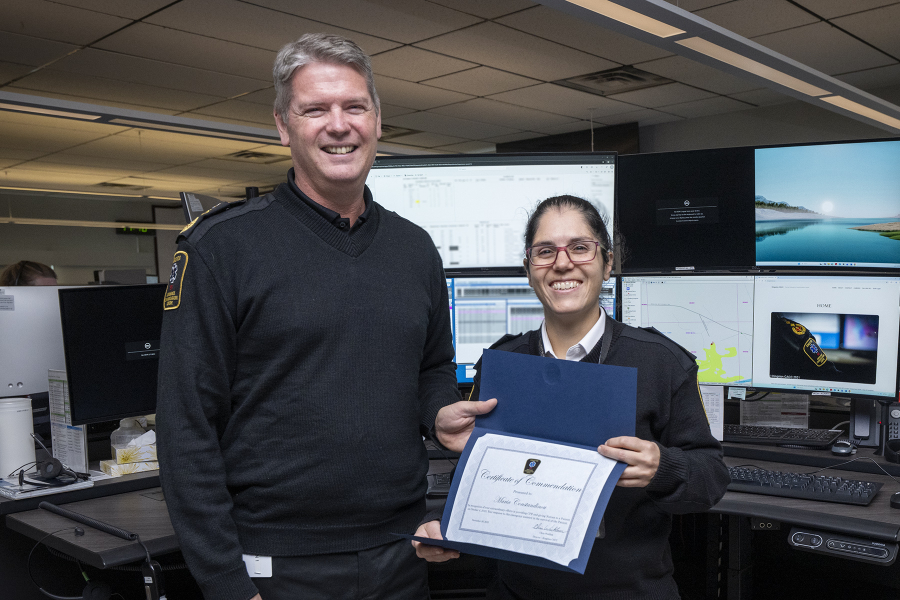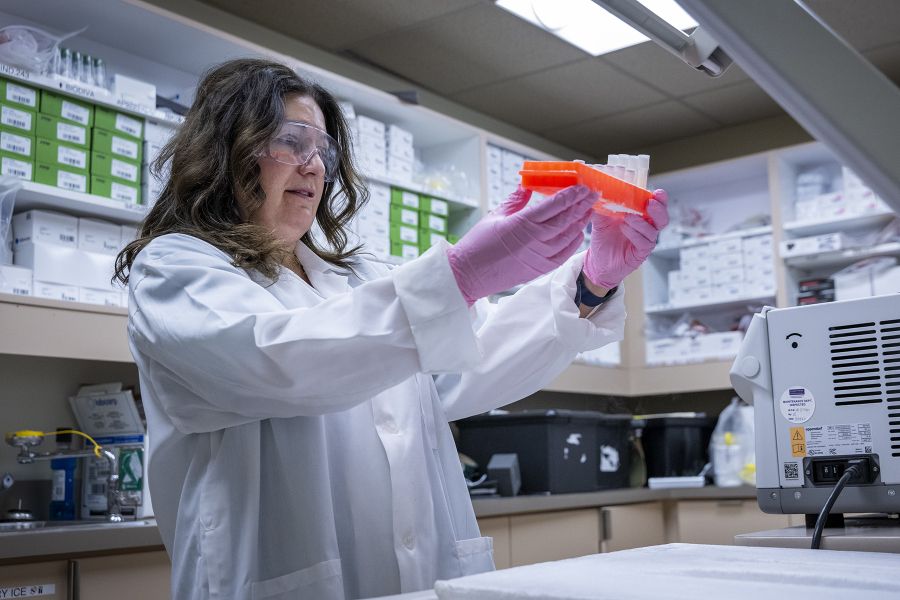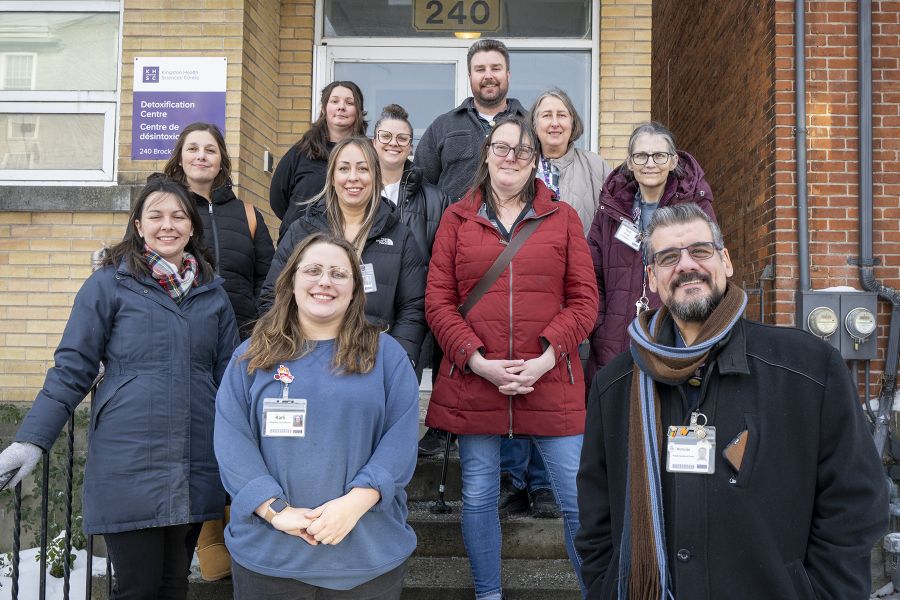Effective immediately masking is required for everyone when present on all inpatient units, in the Emergency Department (ED), the Urgent Care Centre (UCC), and the Children’s Outpatient Centre (COPC).
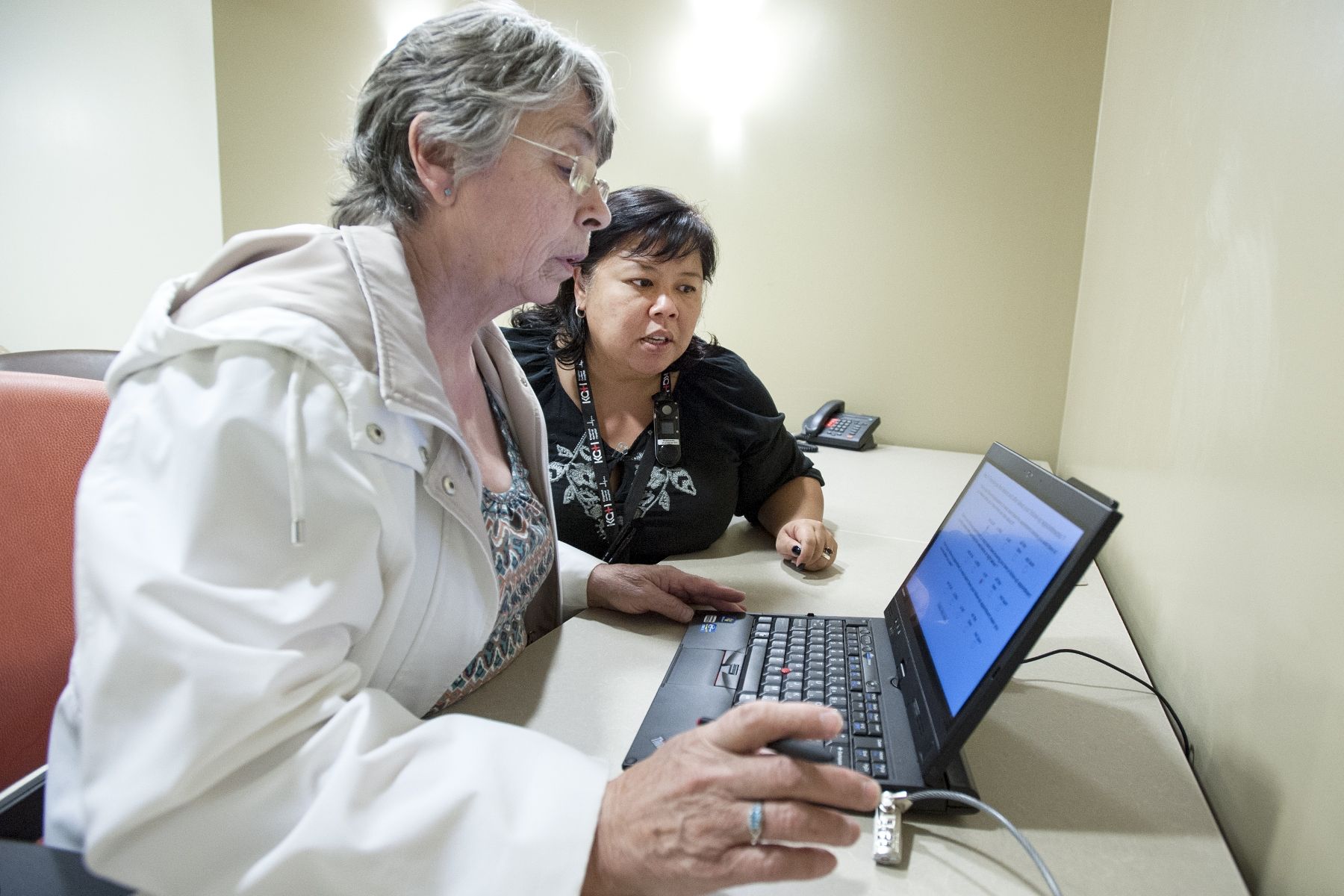
The Canadian Cancer Society has created a new category of research grant that focuses on improving the patient experience, and a physician practicing at the Cancer Centre of Southeastern Ontario at Kingston General Hospital is among the first to receive it.
Dr. Stephen Hall, a head and neck cancer specialist and researcher, has been awarded a Quality of Life Grant from the society worth just over $153,000. He's going to use it to ask his cancer patients all about their routine follow-up visits.
"Cancer patients regularly come for follow-up visits and we want to know what their experience is like," says Hall, also a Queen's School of Medicine professor. "For the next three years, we will ask them about their attitudes, needs, preferences, fears and expectations regarding their follow-up care."
Hall says one of the triggers for his study is the fact he's seeing a lot of patients who are asymptomatic after treatment.
"At the moment, there is no evidence that repeatedly seeing asymptomatic patients helps their survival," he says. "Once we understand what they are getting out of these visits, we can incorporate it into a new model of follow-up care that is efficient, targeted and effective for the patient and the health-care system."
For example, 65 per cent of Hall's patients now drive long distances for checkups that only last a few minutes.
There is no consensus in cancer centres across the country on how often head and neck cancer patients should be seen, or for what duration. There is also no standard on which types of patients need to be seen more often, or on what should be included in a typical follow-up visit.
"Finding out what our patients want and need is a big first step to improving the system," says Registered Nurse Loudres Abella, who is helping run the study at KGH. "We've been doing the survey as a pilot project over the past year and we've already learned a lot about what people value. It's not always what we might expect."
Thanks to the grant, Hall and his team will run the study for the next few years. Once the data is in and some new protocols have been developed, they will be tested in another study to make sure they take into account the patient's well-being and the chances their cancer will reoccur, while also being cost-effective.
"This is the kind of patient-oriented research project that KGH encourages and is always proud to support," says Roger Deeley, Vice President of Health Sciences Research. "We look forward to Dr. Hall and his teamís findings and their recommendations about how to improve the follow-up care model for people recovering from cancer."
To find out more about the Canadian Cancer Society and the research it supports through such fundraising events as the upcoming Kingston Relay for Life, visit www.cancer.ca.
Gallery
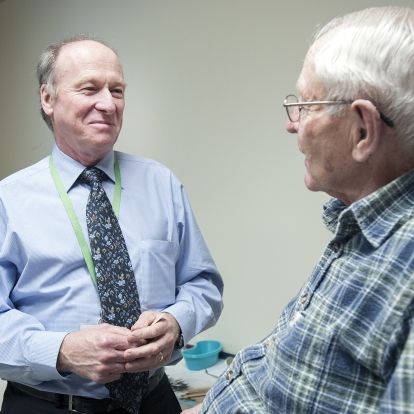
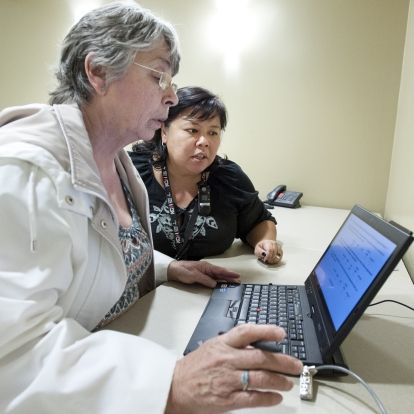
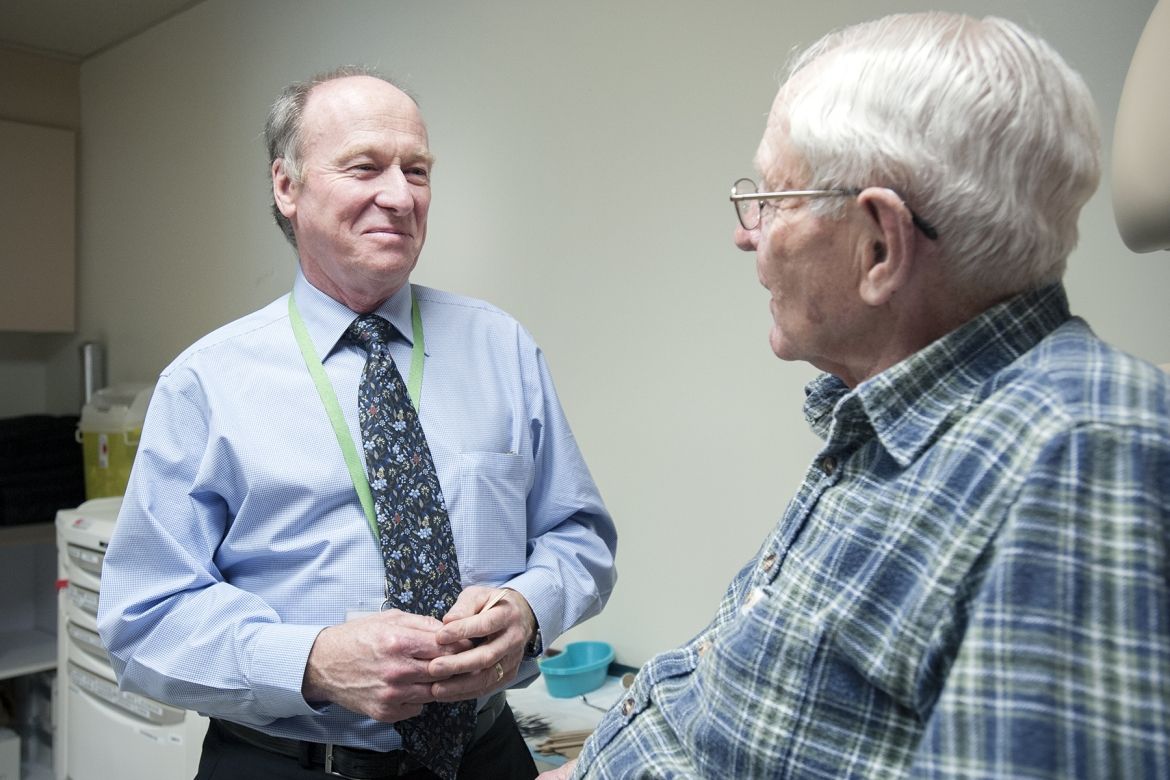
Dr. Stephen Hall talks with patient Ben Detlor during his routine follow-up cancer care visit.
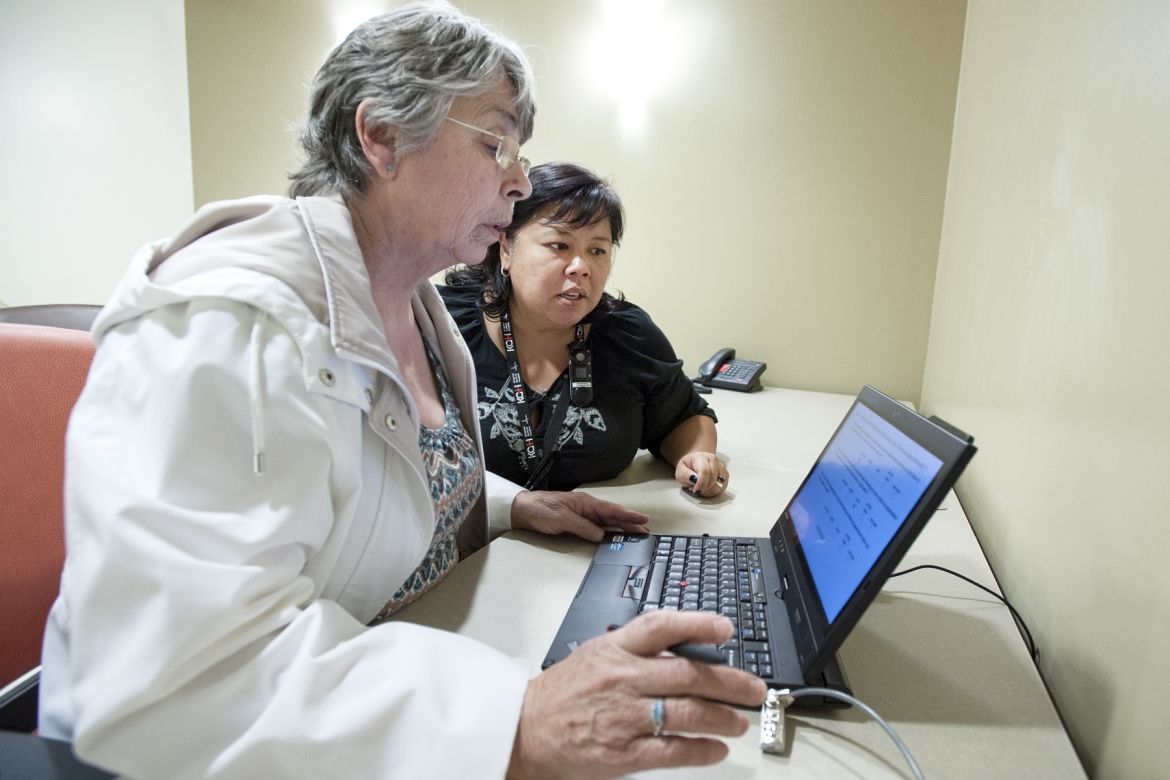
Registered Nurse Loudres Abella assists Donna Detlor (left) with filling out a patient follow-up care survey after her husband's routine checkup.

